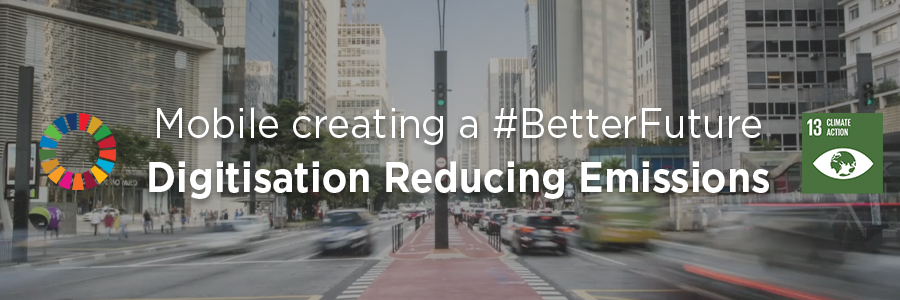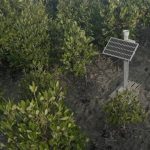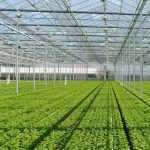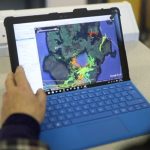
Mobile technology has an immense capacity to globally reduce the impact of climate change, though the digitisation of wider industries.
Mobile operators are playing an increasingly catalytic role in helping other sectors dramatically scale down their own carbon footprint. The evolvement of digitisation has allowed a multi-stakeholder approach to effectively leverage the power of mobile connectivity and deliver real impact. The private sector has a huge role to play in ensuring their business strategies are environmentally friendly, in alignment with growing consumer expectations.
Learn more now
Mobile operators are committed to developing and launching environmentally sustainable solutions across all sectors. Here are just some examples of how the industry is striving to reduce emissions:

Reducing Carbon Footprint
Advanced technology enables millions of consumers and businesses to reduce their carbon footprint and be more sustainable. Connected solutions help customers save energy and reduce their own carbon emissions. Verizon have set a goal outlining that by 2022, all networks and connected solutions will save more than double the amount of global emissions that their operations create.
Resources

5G Farming
In the Netherlands, mobile operator KPN are using 5G farming techniques to reduce carbon emissions and mitigate climate change. The use of irrigation sensors optimises water management reducing the associated energy consumption. 5G technology precision farming is becoming more accessible to agricultural firms, enabling them to respond almost immediately to developments on their land. As a result, farmers can make savings in areas such as crop protection, to the benefit of the environment. At the same time, the yield is expected to rise, because it is possible to react straight away to the condition of the crop.
Resource

Smart Cities
Etisalat Digital and Ericsson have launched unified traffic management IoT platforms to turn the UAE transport system into a smart traffic management system. Solutions include Secure Vehicle Tracking, Automotive Surveillance and eCall Accident Simulation Alert to improve response and reaction to road accidents. This will advise citizens on pollution free routes and increase public health.
Resources

Smart Manufacturing
Application of advanced systems to increase knowledge around inefficiencies and enable rapid manufacturing of new products, dynamic response to product demand and real-time optimisation of manufacturing production and supply chain networks. Includes virtual manufacturing, customer-centric production, circular supply chains and smart services. Ericsson developed the world’s first celluar IoT based smart factory. Benefits include increased efficiency, fewer human errors, increased reliability, nearly zero downtime, and improved service life for tools and equipment.
Resources

Smart Energy
The connection of energy supply to current demand using more efficient networks encompassing distributed and variable power generation, real-time response to demand changes, predictive analytics and forecasting (supply and demand) and reliable infrastructure resilient to change. True to its goal of innovating to better meet its customers’ needs, Orange has developed the Orange Smart Metering solution targeting electricity operators in the 23 countries of the Middle-East and Africa zone in which the company is represented.
Resources

e-health
Transfer of health resources and care using ICT to cover three areas: delivery of information for professionals and consumers, improving provision of public health services (e.g.: education and training of health works) and enabling patients to manage their own health. B-Medical systems is a Luxembourg based company who supply and transport vaccines around the world. Using mobile operator KPN’s Internet of Things technology, they developed a smart logger system to monitor their vaccine refrigerators in transit at every step of the journey. The GPS logger works in several ways; constantly ensuring the refrigerator temperature is correct, measuring the ambient temperature and controlling the refrigerator’s door opening. If a problem arises the logger sends a text message to a technician who can fix the problem immediately. The system was designed with developing countries in mind; the logger is easy to use for those with little technical experience and the fridges themselves do not need electricity to work, but can rely on solar power, liquefied gas and kerosene so they can continue to be used for vaccine storage in the future.
Resources